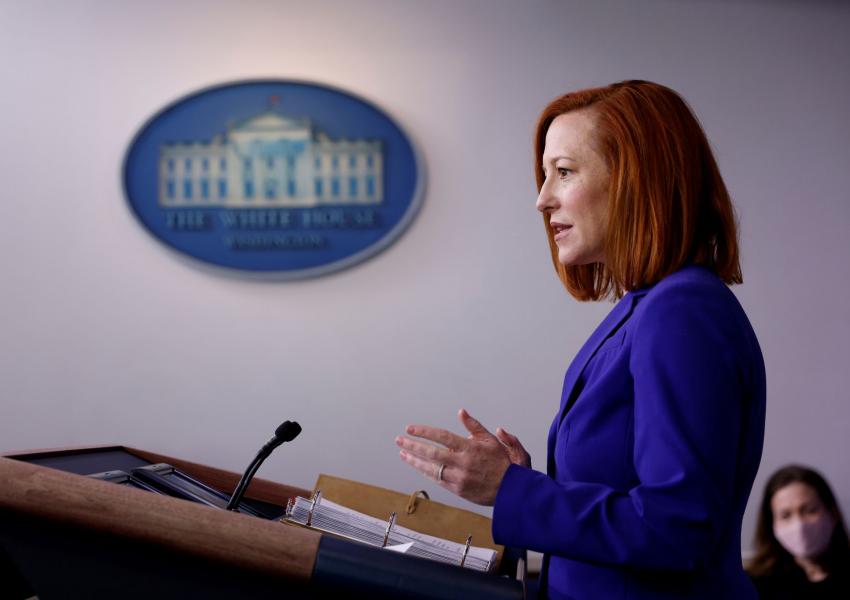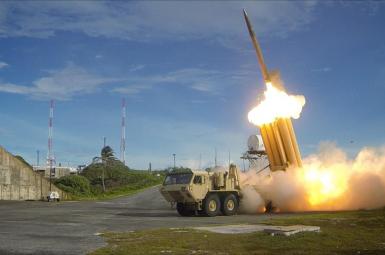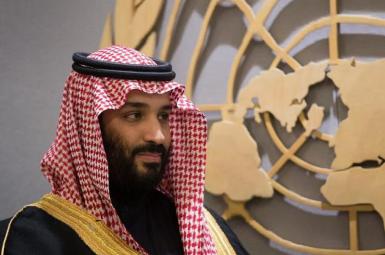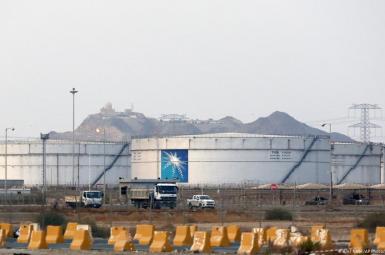
US Expresses Alarm At Houthi Attacks On Saudi Arabia, Promises Support
The United States on Monday [March 8] reiterated its commitment to defending Saudi Arabia after a round of drone and missile strikes on Saudi oil facilities by Yemen’s Iran-backed Houthi rebels.
White House press secretary Jen Psaki said the US was “alarmed by the frequency of Houthi attacks on Saudi Arabia” and would “look for ways to improve support for Saudi Arabia’s ability to defend its territory against threats.”
Saudi officials said there were no casualties or property damage from Sunday’s attacks targeting an oil storage center, a refinery, the world’s biggest offshore oil loading facility, and a residential compound used by Saudi Aramco. Saudi planes on Sunday bombed the Yemeni capital Sanaa.
Saudi Arabia first intervened in the Yemeni civil war in 2015, largely with air-strikes. The Houthis have attacked Saudi oil facilities, airports and other targets in the past few years leading Riyadh to blame Iran for supplying the Houthis with arms.
A United Nations panel of experts found in February 2020 that new weapons that the Houthis had acquired in 2019 “had characteristics similar to arms manufactured in the Islamic Republic of Iran.”
Saudi Defense Ministry spokesman Colonel Turki al-Malki also said on Al-Arabiya television that Iran was sending missiles and drones to the Houthis. The group and Tehran have rejected such charges.
Riyadh has recently argued that Iran’s ballistic missiles and support for regional allies and proxies, including the Houthis, should be limited as a condition for any revival of Iran’s 2015 nuclear pact with world powers, which the Saudi have opposed.
While President Donald Trump strongly backed Saudi Arabia, including over the war in Yemen, President Joe Biden has responded to rights groups who have accused Riyadh of war crimes. The Biden administration in February delisted the Houthis as a ‘terrorist’ group, a designation introduced by Trump and criticized by aid organizations as restricting their humanitarian work.
Biden has also restricted the supply of some weapons to the Saudis, who concluded billions of weapons deals under Trump, and subjected 76 Saudi individuals to visa restrictions on the grounds they were “believed to have been engaged in threatening dissidents overseas, including but not limited to” killing of Washington Post journalist Jamal Khashoggi in Istanbul in 2018.
After Sunday’s attacks, the Saudi-led coalition said the Houthis had been emboldened by Biden revoking the terrorist designation. In September 2019, multiple drones and cruise missiles hit Aramco facilities in Saudi Arabia causing major damage. While Houthis claimed responsibility, Riyadh and some western governments said Iran bore responsibility for the attack, which briefly halved Saudi oil output.
The Houthi movement said Sunday’s operation using 14 drones and eight ballistic missiles also attacked military targets in the Saudi cities of Dammam, Asir, and Jazan. The Saudis said they had destroyed 12 drones, without specifying locations, and two missiles heading towards Jazan. The Saudi defense ministry later said it had intercepted an armed drone coming from the sea before it could hit its target at Ras Tanura. Shrapnel from a ballistic missile fell near the residential compound used by Aramco.
The Yemen war has led to the deaths of 233,000 people, according to the UN, and pushed millions to the brink of famine. The Houthis, who have controlled the capital since 2014, say they are fighting a corrupt system and foreign aggression.
With reporting by Reuters








